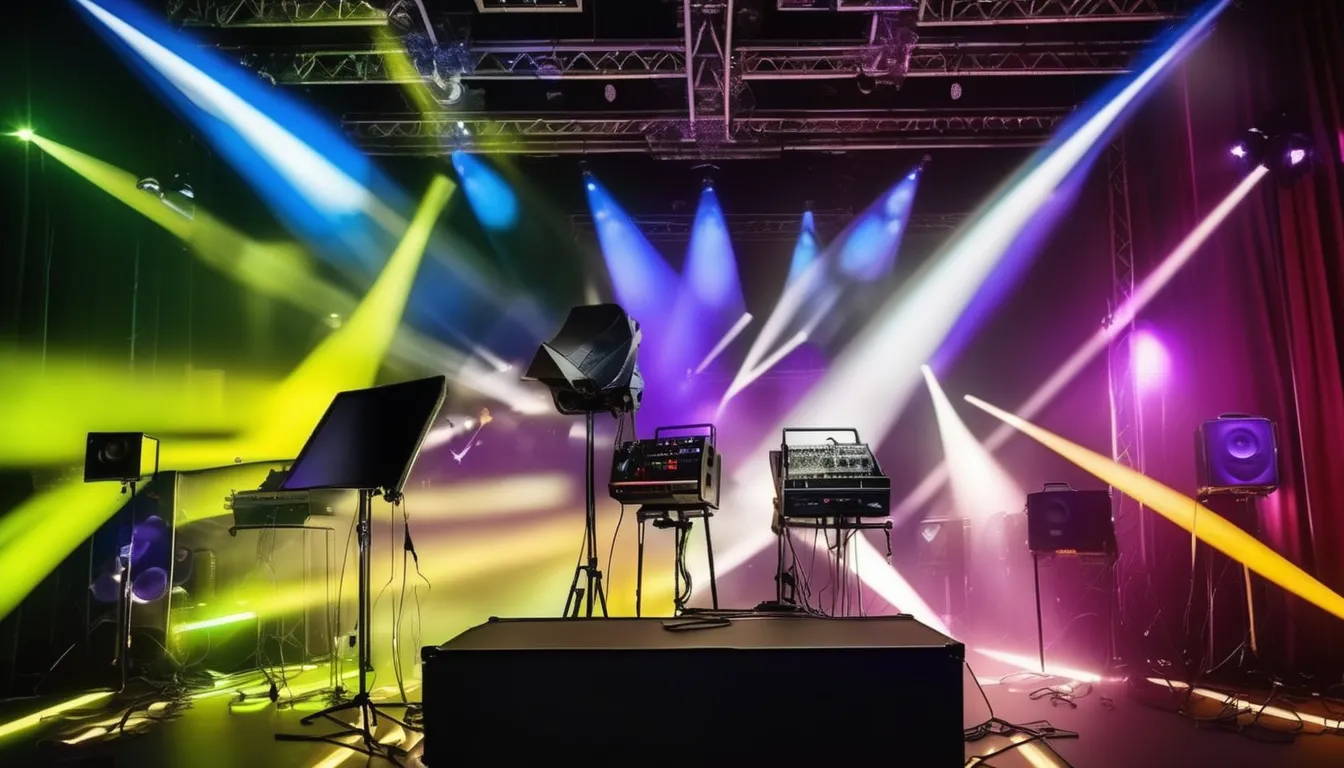When you’re planning your next project, renting the right audio studio can make all the difference in achieving your vision. You need to pinpoint your specific needs, from the type of recording to the sound quality you aim for. Not all studios are created equal, so it’s essential to do your homework on available options. As you explore, you’ll find that a studio’s reputation and equipment can significantly impact your experience. But before you lock in a rental, there are a few key considerations that could save you time and frustration later on.
Determine Your Project Needs
When diving into audio studio rental, you’ll want to clearly define your project needs.
Start by considering the type of project you’re working on. Are you recording music, podcasting, or mixing sound for a film? Each project has different requirements, so pinpointing your focus is crucial.
Next, think about the scale of your project. Do you need a large space for a full band, or will a smaller room suffice for solo recordings? This helps narrow down your options significantly.
You should also evaluate the equipment you’ll need. Do you require specific microphones, instruments, or software? Make a list of essential gear to ensure the studio has everything you need to bring your vision to life.
Don’t forget about the acoustics. Consider the sound quality you’re aiming for and whether the studio has the right setup to achieve it.
Research Studio Options
How do you find the right audio studio for your project? Start by identifying your specific needs, like the type of recording you’ll be doing and the sound quality you require.
Next, search online for local studios that match your criteria. Websites, social media, and industry forums can provide valuable insights. Pay attention to reviews and testimonials from previous clients to gauge their experiences.
Once you have a list of potential studios, consider factors like equipment availability, studio size, and the expertise of the staff.
If you’re working on a budget, check for any special packages or discounts that might be available. Also, think about the studio’s location and accessibility—an easily reachable place can save you time and hassle.
Don’t forget to compare the pricing models of different studios. Some charge by the hour, while others might offer flat rates for longer projects. This could significantly affect your budget, so choose wisely.
Visit Potential Studios
After narrowing down your list of potential audio studios, it’s time to visit them in person. This step is crucial for assessing the studio’s environment and equipment firsth koloneliu nuoma vilnius . Schedule visits during operating hours to see the studio in action. Pay attention to how the staff interacts with clients; their professionalism can impact your project.
Take note of the studio’s layout and acoustics. Walk around the recording spaces, control rooms, and any other facilities available. Make sure they can accommodate your specific needs, whether it’s a live recording session or post-production work.
Don’t hesitate to ask questions. Inquire about the equipment, software, and support services they offer. Check if they’ve the necessary gear for your project, and see how well-maintained everything is.
Also, consider the overall vibe of the studio. You want a space where you feel comfortable and inspired. If possible, speak with previous clients to gather insights about their experiences. This firsthand knowledge will guide you in making an informed decision.
Visiting potential studios will ensure you find the right fit for your audio project.
Understand Pricing Structures
Before signing on the dotted line, it’s essential to understand the pricing structures of the audio studios you’re considering. Different studios have various pricing models, and knowing these can save you from unexpected costs.
Typically, you’ll find hourly rates, daily rates, or package deals. Hourly rates are common, especially for short projects, but they can add up quickly if you’re not careful.
Ask about what’s included in the rate. Some studios might offer perks like equipment, acoustics, and engineering support, while others charge extra for these services. Additionally, inquire about any cancellation policies or fees for extending your session.
It’s also wise to compare rates across several studios. While a higher rate might seem daunting, it could be worth it if it includes better equipment or a more experienced sound engineer.
Don’t forget to factor in hidden costs like insurance or deposit requirements.
Prepare for Your Session
Preparing for your session is crucial to making the most of your time in the studio. Start by creating a clear agenda. Outline the goals you want to achieve, such as recording specific tracks or experimenting with new sounds. This focus will keep you on track and help the engineer understand your vision.
Next, gather all necessary materials ahead of time. Bring your instruments, sheet music, or any specific gear you plan to use. If you have a particular sound in mind, compile reference tracks to share with the producer or engineer. This will help them grasp your style and expectations.
Don’t forget to rehearse! Spend time practicing your pieces so you can deliver your best performance. This not only saves time but also enhances the quality of your recording.
Lastly, ensure you’ve communicated with the studio about any specific requirements. If you need certain equipment or have special requests, discuss these in advance to avoid surprises on the day of your session.
With proper preparation, you’ll maximize productivity and create a smoother recording experience.
Conclusion
By following these tips, you’ll set yourself up for a successful audio studio rental experience. Know your project needs, research your options, and visit potential studios to find the right fit. Understanding pricing structures will help you stay within budget, and thorough preparation will ensure your session runs smoothly. With careful planning and attention to detail, you can create the perfect environment for your project and achieve the sound quality you desire. Happy recording!

